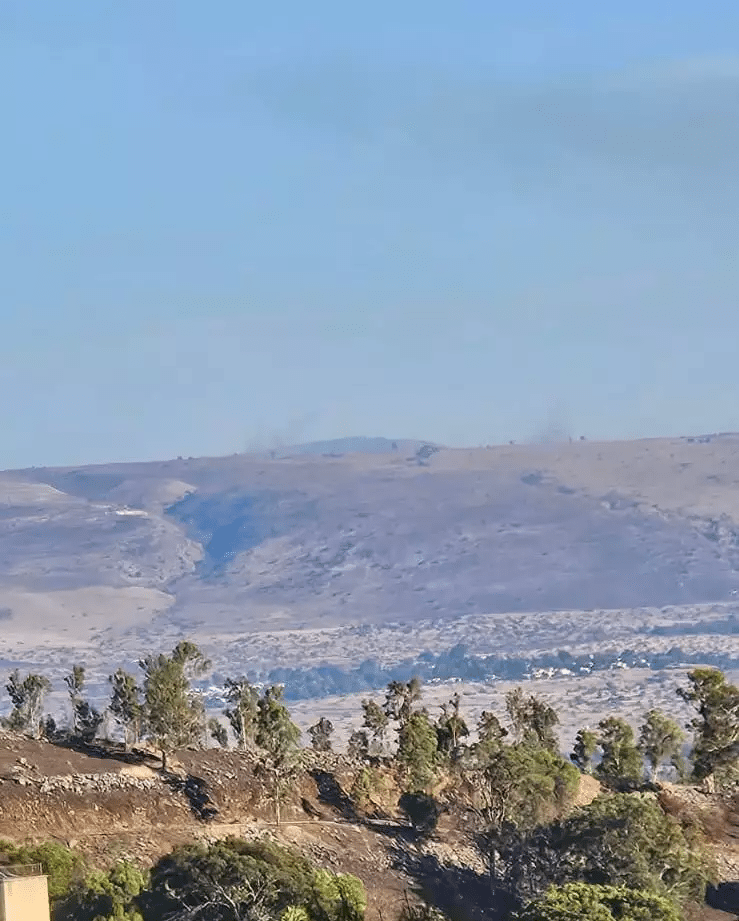Prime Minister Benjamin Netanyahu should use his expected trip to Budapest on Wednesday to secure one specific, meaningful, and historic achievement: Hungarian recognition of Israeli sovereignty in the Golan Heights.
A rare and concrete opportunity has emerged with a group of countries that includes Hungary, Argentina, and the Czech Republic, alongside other nations that have moved their official missions to Jerusalem. Together, they could help alter the status of Israel's sovereignty in the Golan and normalize the obvious - recognition of Israeli control over the area as part of a broader reconfiguration of the Middle East.
From the perspective of these countries, the time has come to lead a global shift in reaffirming a commitment to Israel's security, regional stability, and an overdue update to the "operating system" of diplomacy. An update that is sorely needed for the challenges of the second quarter of the 21st century.

Commitment to Israel's security
Recognition of Israeli sovereignty in the Golan is a move of historic importance, and a tangible demonstration of commitment to Israel's security. Anyone familiar with Middle Eastern history, especially since the Arab Spring, understands that permanent Israeli control over the Golan is the only guarantee for securing its eastern border and preventing catastrophe in the event of an attack from Syrian territory. Imagine if the Syrian civil war had played out on the shores of the Sea of Galilee; if al-Qaeda and Jabhat al-Nusra had entrenched themselves on the border; or if on the morning of October 7, Syrian forces had observed Hamas's assault from the Golan Heights.
The recent shift in Syria underscores the need to stand firm against the long-term strategy of radical Sunni Islam, backed by Turkey and Qatar, to pressure Israel into indefensible borders on its Syrian front.
Today, more than ever, it is clear: securing the existence of the Middle East's only Jewish state requires recognition of its sovereignty over the Golan Heights. This guiding principle must be a priority in every meeting and conversation the prime minister and foreign minister hold with their counterparts around the world.
Middle East stability
Recognition of Israeli sovereignty in the Golan would also contribute to regional stability - a clear international interest. Such recognition undermines the legitimacy of states and terrorist organizations that attempt to escalate tensions in the Golan as a means of pressuring Israel to withdraw. It reduces motivation for conflict and prevents war and bloodshed.
Furthermore, Israeli sovereignty over territory overlooking Damascus and southern Syria effectively deters internal Syrian actors and curbs the outbreak of uncontrolled massacres and mass killings of minorities within Syria. Curbing this violence is a prerequisite for halting the waves of migration from the region that are directly and indirectly destabilizing the political and social structures of host countries, especially in Europe.
Recognition of Golan sovereignty also sends a clear signal of disapproval to Iran's aggression via its proxies in the region - a move particularly relevant for countries like Hungary, Argentina, and the Czech Republic. It is a fitting and complementary response to the fall of the Assad regime, aligning with the biblical notion of justice: "Woe to the wicked; it will go badly with him; for what his hands have dealt out shall be done to him."

This cluster of countries has a strategic interest in aligning with the new US administration as much as possible and harmonizing their geopolitical worldview accordingly.
Recognition of Israeli sovereignty in the Golan is not only a gesture toward Israel, it is primarily a gesture toward the US and its updated Middle East policy. With President Donald Trump entering his second term in the White House, it appears he is adopting a revised diplomatic framework. According to the Trump Doctrine, realities on the ground should shape diplomatic solutions, defusing points of contention and resolving political and territorial disputes.
Many Western countries are trying to align themselves with this revised doctrine. In this context, it is evident that supporting a US-brokered compromise between Russia and Ukraine is far more complex and contentious for the international community than aligning with US positions in the Middle East, particularly recognition of Israeli sovereignty in the Golan.
It is important to emphasize that US recognition of Israeli sovereignty in the Golan is a bipartisan legacy = one of the few Trump-era initiatives not reversed by the Biden administration. The American consensus on the Golan should serve as a guiding light for other countries, especially in countering the alternative historical narrative promoted by radical Islam.
Recognition of Israeli sovereignty in the Golan carries none of the religious sensitivity that often accompanies discussions about recognizing Jerusalem as Israel's capital. Nor does it raise issues about dominion over another people, as in the context of Israeli control over the West Bank. The 25,000 Druze residents of the Golan who live on the Israeli side are entitled to full Israeli citizenship, and a growing portion of this population is choosing to exercise that right. Most importantly, there is no viable alternative to Israeli control of the Golan, not even in the long term.
This week, Netanyahu has a rare opportunity to persuade Hungary. The success or failure of his visit will be measured by this issue. Simply securing Hungarian agreement on general Israeli policy issues, including the collapse of Hamas's regime, the release of hostages, or the Iranian threat, is not enough. That would amount to nothing more than a warm press conference, without any real change on the ground.
The writer is the founding chairman of the "Coalition for the Israeli Golan".




